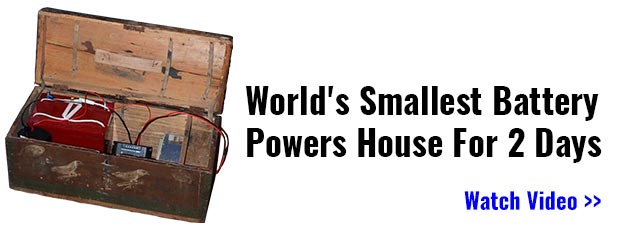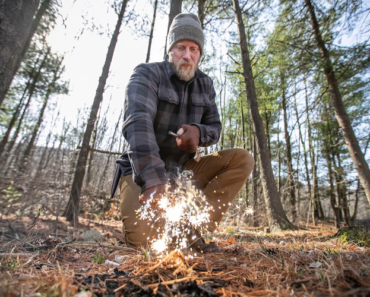SHTF scenarios could happen at any moment. You could see an economic collapse, war, natural disaster, and civil unrest happen nationwide and in your backyard. Whatever happens, you need to be prepared to hit the highway when the moment strikes.
What do you need for the trip ahead? Here are 11 tips to improve your chances on the road in SHTF scenarios.
1. Gather the Family
When push comes to shove, you first need to gather your family. If you have a spouse or children, coordinate with them to ensure they’re on board to hit the road with you. It’s also critical to get in touch with older relatives like your parents, aunts, uncles and grandparents to plan for their safety. These family members may have difficulty getting around, so bring them along in your bug-out transportation if you have extra space.
You don’t have to tackle danger by yourself in SHTF scenarios. If you have survivalist friends, consider collaborating with them and their families to increase your chances of survival. After all, more hands mean less work.
2. Pack Food and Water
The next step in improving your chances on the road is to pack food and water. SHTF scenarios bring a lot of uncertainty about how long they’ll last. Threats of bad weather could last a few days, but a pandemic or war could last years. An economic collapse may need the better part of a decade to recover. Remember the stories your grandparents told you about the Great Depression?
It’s essential to plan for packing food because people will wipe the grocery store shelves when disaster strikes. Bring nonperishable items like canned food on your road trip. Canned vegetables, tuna, crackers and fruit will last through your SHTF scenario. You’ll also want to pack granola, cereal, powdered milk, seasonings and bottled water. The rule of thumb for water is 1 gallon per person daily to give yourself the best odds.
3. Remember the Medicine
One essential item survivalists need to remember is medicine. Whether over-the-counter (OTC) or prescription, medication can make life much easier when you’re on the road. It’s important to have a medicinal stockpile, but check the expiration dates because they won’t last forever.
Before hitting the road, pack an eclectic mix of OTC medications. They may include pain relievers, antihistamines, antacids, mild laxatives, diarrhea medicine and cough drops. Sleep comes at a premium during SHTF scenarios, so bring sleep aids or mild sedatives to help you and your family members rest, even in dire times. If you need prescription medication, ensure you have a plentiful supply and have access to refills if required.
4. Secure Your Ammunition
When SHTF scenarios hit, you need the best self-defense mechanisms to protect yourself and your family. You never know where looters and other thieves lurk, and driving to new areas presents challenges in unfamiliar territory. Prepare ahead of time by securing the proper firearms and ammunition.
You’ll want a supply of firearms you can trust when the going gets tough. If you expect combat up close, grab your favorite pistol and shotgun. Pack your best rifle and modify it with a magazine and other improvements for long-range combat. Leave the chamber empty while on the road to comply with state laws about transporting ammunition.
Portable Device Generator – Learn How To Build Your Own Energy Generator!
5. Prepare Your Vehicle
When disaster strikes, you need to hit the road quickly and for an extended time. These doomsday scenarios could lead you to live out of your car for weeks or months. You’ll want to ensure you have the right vehicle for these scenarios and prepare it for a getaway.
Get a head start by performing routine maintenance on your car so you’ll have less to worry about later. This checklist should include the basics, such as changing your oil, airing your tires and checking your transmission fluid. Trucks are one of the best options for SHTF scenarios because of their towing capacity. You can also modify the bed to hold supplies and additional equipment.
6. Protect Your Transportation
Your road trip will likely take you to unfamiliar territory. If the disaster is widespread, you won’t be the only one fighting for resources and safety. You and your vehicle may become the target for theft if others see you’ve prepared for SHTF scenarios, creating a liability for you and your family. Another way to strengthen your car for what’s ahead is to fit it with security features.
One of the best deterrents of theft is a wheel clamp. This device is helpful if you’ve decided to park in one spot for a while. Clamping one of your wheels means thieves won’t be able to move your car an inch. Another excellent anti-theft device for vehicles is a brake lock, which requires a key or code to unlock the pedal. Disabling the brake pedal will discourage thieves from a quick getaway.
7. Buy Extra Gas
People anticipating impending doom raid two places for supplies. One is grocery stores and the other is gas stations. Have you ever seen gas pump lines before a hurricane? The wait can be long, and the prices will soar because of demand. A practical way to improve your chances on the road is to stock up on fuel beforehand so you’re not SOL when the time comes.
Storing fuel can be tricky, but it’ll be worth it if you can do it right. Ordinary gasoline has a shelf life of about three to six months. Diesel users benefit because their fuel will last up to a year before degradation. Gas has a shelf life, but you can improve it by using fuel stabilizers. How long it will last depends on oxidation, ethanol levels and evaporation. Store it in an airtight container and avoid high-ethanol blends for best results.
8. Practice Fuel-efficient Habits
In some scenarios, you may only have a limited time to hit the road and escape disaster. Stocking up gas or stopping for a quick fill-up aren’t always options. You need every ounce of energy possible to last in these urgent situations, so practice fuel-efficient habits to extend the range of your vehicle. Imagine you’re a racecar driver stretching out the fuel mileage to take the checkered flag.
One of the best ways to save fuel is to shift with a manual transmission. Higher RPMs mean your vehicle burns more gas, so move through the lower gears smoothly. Only have your car on if you actively need it. Idle vehicles burn precious fuel that you’ll need later. Also, consider your vehicle’s weight. Supplies are essential, but you should avoid overloading the car. Lightening the load increases fuel efficiency.
9. Map Out Your Destination
Another way to save fuel is to know where you’re going. It’s hard to plan exactly when SHTF scenarios will arise, but when you hit the road, you should formulate a plan to get where you’re going. If necessary, use old-school methods and break out a paper map. Use pens and highlighters to plan routes to get to your destination.
It may be helpful to take back roads during your getaway. The odds are likely that you’re not the only one driving. When disaster strikes, thousands of cars will hit the highways and interstates trying to escape. If the roads are too busy, have two or three backup routes for safer travel. Idle time in the car wastes time and money, exposing you to thieves looking to intimidate drivers.
10. Get a Weather Radio
Natural disasters are becoming more violent, so their threat has become as bad as other SHTF scenarios. Sometimes, a hurricane or snowstorm is treacherous enough to knock out cell towers and the internet for hundreds of miles. Knowing where the weather is going and how much time you have to escape is essential in these situations. A terrific solution is to get a weather radio.
The National Oceanic and Atmospheric Administration (NOAA) has operated NOAA Weather Radio nationwide since 1967. You can find numerous weather radios, so find one that fits inside your bag or vehicle. Most require batteries. However, today’s technology allows you to obtain a solar-powered radio. This technology can be handy when stores are closed and you can’t find other power sources.
11. Bring Emergency Kits
Minor problems can quickly turn major in SHTF scenarios if you’re not careful. You’ll want as much focus as possible on survival and protection without worrying about the small things. For example, imagine you’re preparing food and accidentally cut your hand. Even a tiny cut can be problematic if you don’t attend to it. For your safety, pack a first-aid kit.
A comprehensive first-aid kit will provide the materials you need for any accident. You’ll need antiseptic wipes, antibiotic ointments, bandages and sterile gauze pads. It’s also wise to bring an oral thermometer, tweezers, non-latex gloves, emergency blankets and cloth tape. These items can save lives before medical help arrives. In SHTF situations, an ambulance or a hospital may be too far away.
Surviving on the Road
Traveling in SHTF scenarios is a challenging task. Torrential weather could knock down trees, buildings and power lines. Economic collapse leads to looters and other thieves running rampant. The laws of the land no longer apply, so follow these 11 tips to improve your chances on the road.



























